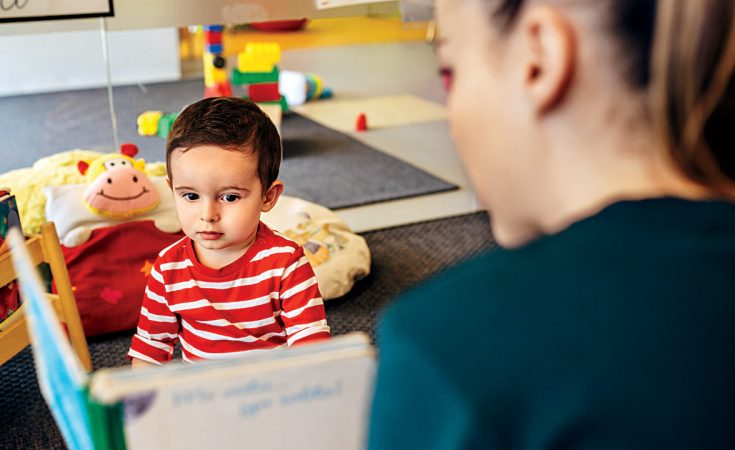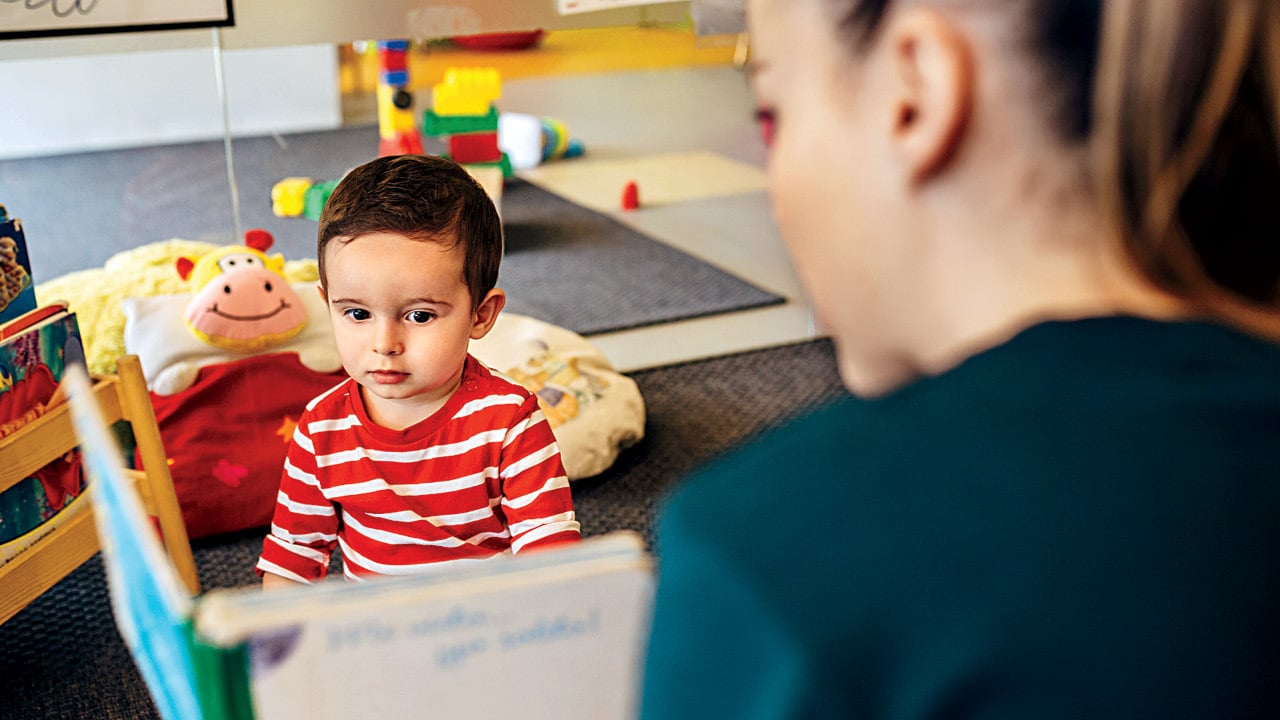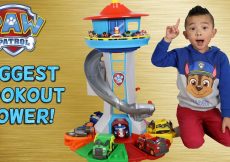Hanging out with adults is not necessarily a bad thing, but there are some ways to get your kid playing with their peers.
When he was three, Alex* used to start each morning of daycare by asking his teacher how she was and what she did the day before. “He was really interested in her life,” recalls his mom, Erin Gray.*
Less interesting to him were his peers, with whom Alex struggled to connect. He mostly interacted with his teachers or played solo. But this preference for hanging out with the daycare staff over other preschoolers didn’t worry Gray, who says Alex was verbally advanced for his age. “We just laughed and said, ‘That’s our kid.’”
Georgia Miller, an educator who specializes in children’s mental health and is based in Edmonton, says it’s not uncommon for kids to prefer adults to other kids. Some, like Alex, are cognitively ahead of their peers so they find adults more stimulating. Others may have anxiety or a lack of confidence in social situations, and playing with a trusted adult feels safer and easier. “Children get to direct the play, there is no sharing involved and they get the control and power,” says Miller.
While it’s not a major red flag if your kid isn’t a social butterfly, it is important to encourage them to play with kids their own age, because it helps them learn how to self-regulate, interact with others and make decisions, says Lisa Seward, a Toronto-based child and parenting coach who specializes in socialization. “Play is how they learn how to navigate their world.”
Most neurotypical kids are ready to learn this around age three, as they move past the toddler parallel-play phase. If your preschooler doesn’t naturally gravitate toward their peers, you may have to help them out. Here’s how.
Emphasize stories and role playing
Miller suggests reading books that feature themes of friendship and positive play. “Have your child guess what the character is going to do as well as what they should do,” she says. Adults can also act out “real life” and model appropriate behaviours. For example, parents can prepare kids for arguments over who gets which toy by acting out that scenario and modelling how to problem-solve.
Get out
As much as possible, give your kid opportunities for same-age interaction, like trips to the park and short playdates, says Seward. You might need to give prompts to help your preschooler mingle with others their age, however. For example, says Seward, while at a playground, if you notice kids playing a fort game, you could say, “I think the kids are in a fort. Maybe take your jacket off and see if they need a flag.” Once your kid has joined in, take a step back—but later on, praise them for interacting with others.
Enlist the teacher
To help your kid interact with others at school, talk to the teacher to see what they do to encourage social exchanges in the classroom. Let them know this is a concern of yours and ask what you can do at home to help support your kid’s interaction in the classroom.
Follow your kid’s lead
Learning to interact with peers is a crucial part of preschool development, but just as important is honouring your kid’s boundaries. Seward notes that if an attempt at peer playing isn’t going well, “take a break and then try again later.”
Be persistent but also patient
With the right guidance and support, most preschoolers will eventually begin playing with their peers as they start to feel safer and create more positive interactions with other children, says Miller.
Indeed, Gray reports that some of Alex’s peers have now, at age six, caught up with him verbally and he is able to crack jokes with them, though he still also enjoys a good conversation with an adult.
When it’s something more
Consistent preference for adult company can sometimes be a sign of a sensory or anxiety disorder, particularly when accompanied by extreme anger, meltdowns and other disproportionate reactions to social situations. Challenges with social skills can also be one of the many characteristics of being on the autism spectrum, although autism spectrum disorder is usually accompanied by other symptoms, like lack of eye contact and repetitive behaviours. Another sign that the behaviour could be something that needs more support is when a child appears as though they lack empathy.
*Names have been changed



































